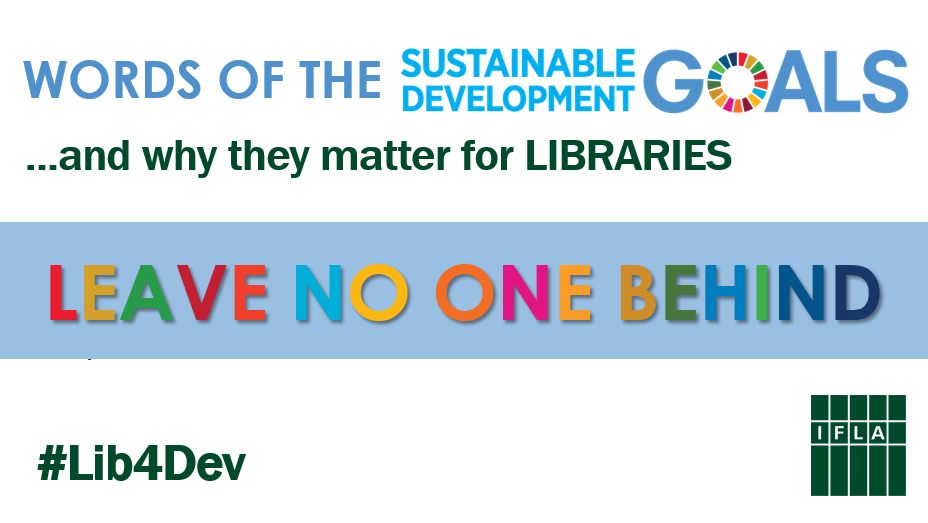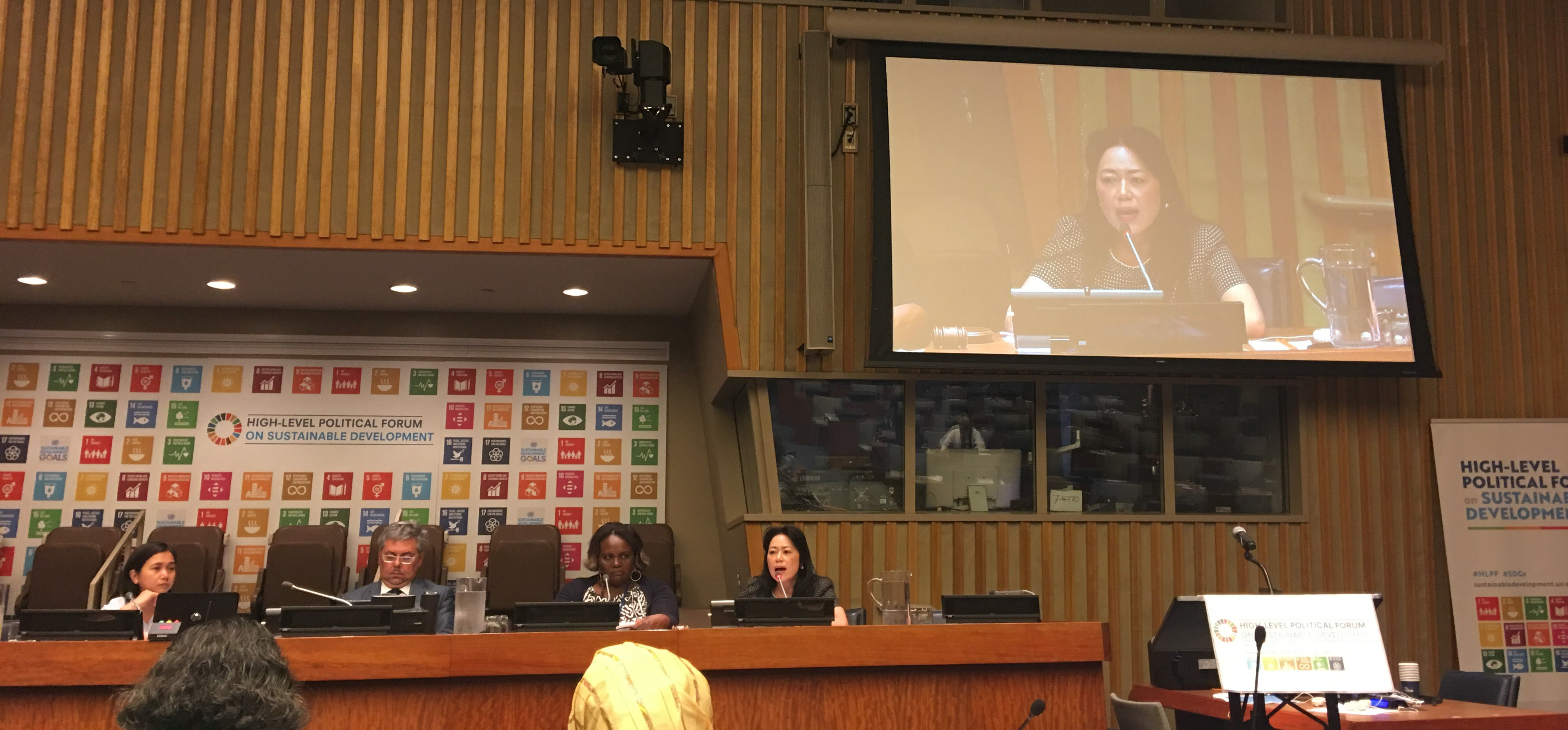Continuing our series of blogs looking at the words (and phrases) which mark the United Nations’ 2030 Agenda, today’s edition looks at ‘leaving no one behind’.
Perhaps unlike some of our previous ‘words’ (intersectionality, resilience, participation), this feels like a refreshing step away from jargon. This has also made it particularly powerful as a term, although, as this blog will explore, it is not the subject of complete consensus.
As with our other ‘words’, it also has an impact on how libraries work with the Sustainable Development Goals, and can become a useful part of library advocacy in this area.

A Vital Shift: From Focusing on the Poorest to Leaving No One Behind
At the heart of the Millennium Development Goals – the predecessor to the 2030 Agenda and its Sustainable Development Goals – was the notion that economic and social progress around the world had failed to make a difference to the poorest. Too many lacked education, sanitation, healthcare, or adequate income. The eight Millennium Development Goals (MDGs) therefore focused on the worst-off.
The measures of progress chosen focused on this group, but used global averages. As a result, thanks to rapid growth in countries like China, leading to falls in absolute poverty and improvements in services, it was possible to declare success on a number of the Goals.
This did not mean, however, that all countries or groups saw progress. Many of the most vulnerable – the targets of the MDGs – saw little improvement, or even went backwards.
The 2030 Agenda acknowledged this point head on by asserting that not only were the SDGs an indivisible whole (all had to be achieved, together), but that they could only be achieved if they were achieved for everyone. This is the basis of the concept of leaving no one behind.
More Complex than it Sounds
While the idea of achieving the Goals for all appears simple, it also raises questions. What does this mean about where governments – and the global community – should focus efforts? Does ‘no one’ refer to countries (i.e. developing countries), groups within countries or individuals? How does this relate to sustainability? All came up in a civil society debate on Sunday, as well as in previous research on the topic.
Fortunately, there is a relatively simple answer to the first question – the primary focus should be on those who need it most. This follows a concept known as ‘progressive universalism’ (for which the model was a Mexican healthcare reform that specifically served the most vulnerable before anyone else).
Yet debate remains as to ‘who’ is left behind. With the 2030 Agenda explicitly focused on the whole world, the implication is that it is citizens and groups within countries who run this risk. Nonetheless, there is also a strong argument that countries with low national income are also vulnerable, and so need support.
A further evolution in the 2030 Agenda is the recognition that being left behind is also a question of where you stand relative to the population as a whole. Even in a rich society, inequalities can have significant impacts on life chances and general wellbeing. The SDGs even include a focus on inequality (SDG10), underlining that even when (if) we can put an end to absolute poverty, there is still much work to do.
In turn, these inequalities are often the result of discrimination. This can come both in social and cultural forms (racism, sexism, etc), but also discrimination through lack of access to the same services as others. People living in rural areas do, arguably, run a higher risk of being unable to access health and education than those in towns and cities. The focus on fighting discrimination – a key notion from human rights – is also a novelty in the SDGs.
Finally, an ongoing debate surrounds whether bringing everyone up to the standard of living of the best off is a good idea as far as the planet is concerned. It seems clear enough that if all pollute as much as the highest polluting, climate change will only get worse. To avoid this, those lucky enough to live in richer societies either need to find much more energy and resource-efficient ways of living, or accept having to share.
What Impact for Libraries
As a universal public service, libraries can already make a strong case, within their communities, to be realising the concept of leaving no one behind. Given the importance of information, as highlighted across the SDGs (19 targets), this is a role worth championing.
In many countries, libraries have a specific mandate to reach out to those populations who are more at risk of being left behind, such as those with special needs. Evidence from the Pew Research Centre suggests that groups seen as minorities rate libraries as more important than others.
In effect, through providing a universal service, paired with additional support to those who need it, libraries both provide targeted assistance to those most at risk, and act as a force for equality in general.
Clearly there is still progress to make in some parts of the world. The idea of leaving no one behind provides a strong argument for investment by governments in libraries.
This is the case not only in terms of promoting physical accessibility (both for people with disabilities, and a wider network of libraries in rural areas), but also as concerns financial accessibility (where there are fees for access), and socio-cultural and legal accessibility (ensuring that citizenship status is not a barrier, as highlighted by the Mayor of Montreal in a session on Monday, and overcoming the belief in some communities that the library is not for them).
Libraries can be key players in fighting both information poverty and information inequality. The concept of leaving no one behind provides a valuable tool for advocacy to make this a reality.
Find out more about IFLA’s presence at the 2018 High Level Political Forum, as well as our broader work on libraries and the UN 2030 Agenda.
Further reading:
- UN DESA, Global inequalities and the debate behind “leaving no one behind”, 21 March 2018
- IIED, Unpacking what we mean by ‘leave no-one behind’, 24 May 2016
- Stuart, Elizabeth, Samman, Emma (2017), Defining ‘leave no one behind’, Open Data Institute

